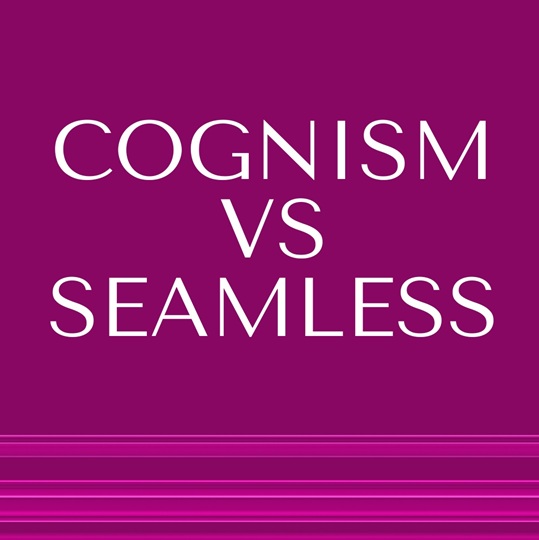Stuck in a state of analysis paralysis choosing between Apollo IO vs Seamless.AI?
We get it–researching new sales tools takes hours, days, or even months.
To help save you time surfing the web and scouring reviews, we’ve done the research on both sales intelligence tools for you right here.
Whether you’re looking for a quick comparison between the two top sales intelligence tools, or a deep-dive analysis of whether Seamless.AI or Apollo gives you the most bang for your buck, use this article to help you get a clear view of how both tools stack up to each other.
Go ahead and close your additional browser tabs and Reddit threads. We’ll summarize everything you need to know to make the right decision, including:
- Pricing structure explanations
- Features, functionality, and user experience
- Data accuracy and coverage
- Software integrations
- Best use cases for Apollo.io and Seamless.AI
Apollo.io vs Seamless.AI Comparison
If you’re just starting out researching the top sales intelligence tools, you probably want a quick overview of features, pricing, and pros and cons. Some professionals use review sites like G2, where Seamless is the highest rated for customer satisfaction among the best software products.
This one’s for you.
Here’s a quick chart that summarizes Apollo.io vs Seamless.AI:

At a glance, Apollo IO makes it very affordable and easy to start prospecting with their tool with their affordable prices.
However, we all know that the price tag isn’t everything.
In the B2B SaaS world, what you pay for is what you get.
In other words, cheap pricing won’t give you top-notch features or data that you need.
You can use this brief comparison chart overview for a quick refresher, but you’ll understand better about the value you’re getting from each tool’s price tag below.
💸Compare pricing structure and plans
Let’s dive straight into the burning question: Which sales tool gives you the more bang for your buck, Seamless.AI or Apollo.io?
It depends.
For the most part, SDRs, AEs, and B2B sales teams want:
- Self-serve business
- Less friction to get started
- Built-in expansion
- Bigger TAM
A good sales intelligence tool that enables self-service business means having the flexibility to solve their issues on their own with speed and ease.
It’s all about flexibility.
Lately, we’re seeing a decline in usage-based pricing structures across B2B SaaS companies.
Users want an even more flexible, hybrid pricing model that combines both usage-based pricing or “pay-as-you-go” pricing with subscription options–with less hidden fees.
That’s the main pricing difference between Seamless.AI and Apollo.
While Apollo’s usage-based pricing model makes it super affordable for new users to sign up with them, there’s inflexibility in the costly upfront pricing commitments based on software access rather than actual consumption or value.
The value the SDRs and sales teams want to see from sales tools is the value of data and data availability with lower-tier plans.
With Seamless.AI, you may be paying a little bit more for low-tier plans (except for the Free plan), but you’ll find that there’s less of a need to manually update or source contact information from a secondary source.

Here are some factors to consider when comparing pricing for Apollo vs Seamless.AI:
- Features included in each pricing tier
- Free trial or freemium options
- Data volume and data types
- Hidden costs (built into contracts)
- Flexibility of pricing add-ons or contract length
Apollo.io pricing structure
Apollo offers both annual and monthly billing.
Here’s an overview of their annual billing plans:
- $0 Free: 10,000 email credits/month, 80 mobile credits, 120 exports
- $49/month Basic: ≥120k email credits, 900 mobile credits, 12k exports
- $79/month Professional: ≥120k email credits, 1.2k mobile credits, 24k exports
- $119 Organization: ≥120k email credits, 2.4k mobile credits, 48k exports
If you want to add more credits, prices start at 20 cents a credit for 2,500 annual credits. The price per credit decreases one cent every 2,500 credits you add.
For small businesses using Apollo, you might not need the extra credits, but knowing the price of add-ons helps you plan when you scale in the future.
For large enterprises using Apollo, you could be looking at an extra $200k a year for 2 million more credits.
It’s also worth noting that with Apollo, you can only import 25 contacts at a time to sequences.
This may be an inconvenience to those who pay for Apollo’s higher-tier plans and have access to such a large database, but are only limited by only being able to import 25 contacts at a time.
Overall, Apollo.io is considered “pricey” for higher tier plans, but quite cheap for their lower tier plans.
Seamless.AI pricing structure
While you won’t find clear price tags for Seamless.AI on the website, you can try it for free or get a customized quote.
Seamles.AI focuses on customizing plans that fit your budget, whether you’re an SMB or an enterprise organization.
Here’s an overview of Seamless.AI’s billing plans:
- Free: 50 free credits for emails, phone numbers, and access to their real-time search engine
- Basic: 250 credits, free trial, and custom pricing
- Pro: Daily credit refresh, pitch intelligence, free admin seat and more
- Enterprise: Customer credits per user and quarterly business reviews
Cost difference between Apollo vs Seamless.AI
At a first glance between Apollo and Seamless.AI, you’ll notice that it seems like you get more credits with Apollo’s lower-tier plans.
However, most SaaS B2B users always appreciate a free trial.
Seamless.AI has a large user base of SMBs and small businesses, and they even offer free trials for both of their lower tier plans.
Here’s what one customer on G2 had to say about Apollo.io’s pricing:
“As a paying customer, I discovered that the pricing plan I had subscribed to was now offering more perks at a slightly higher cost. When I approached their support team to upgrade my plan, they declined, citing a rigid policy that tied pricing to the specific terms at the time of subscription. This inflexibility, especially for loyal customers, felt unfair and inconvenient.”
So while you might get excited about Apollo’s eye-catching price tags, you might be locked into a contract with limited functionality or flexibility to upgrade.
That’s something to think about, especially if you’re looking to integrate a sales intelligence tool into your tool stack for years to come.
Users of both tools have complaints about their pricing, but here’s the general takeaway:
✨ While Apollo is an attractive, affordable choice for new SDRs or small sales teams looking for the most budget-friendly option, Seamless.AI offers more flexibility and value with free trials and affordable pricing.

🔢Data sources, coverage, accuracy and speed
Now to answer the most important question of all: How’s the data?
The quality of data is the differentiating factor between all the top sales intelligence and prospecting tools like Seamless.AI and Apollo.io.
However, there is no such thing as “guaranteed 100% accuracy”.
You can get close, maybe even 99%, but that depends on a few things:
- The type of data you need (international? SMBs? Enterprise? Local?)
- How much data you need
- How fast do you want to access fresh data
In other words, WHO you’re targeting plays a huge role in how “accurate” the data from sales tools seem.
Before getting into the meat of the data comparison, here’s a chart for a brief overview of Seamless.AI’s data vs Apollo.io’s data.
Data sources: Seamless.AI vs Apollo IO
One important thing to consider about data providers is: Where do they get their data from?
The source of B2B contact data influences the rest of the data quality:
- How accurate the data is
- How extensive their data coverage is for diverse markets
- How quickly users can access new, refreshed data
Apollo.io is categorized as a B2B contact database, and Seamless.AI is considered a “real-time search engine” powered by AI.
Like your typical data bases, Apollo.io sources and verifies their data based on third-party providers, public data crawling, and an email verification network.
What this means for users: Databases are not always updated in real-time, and if they are, lower-tier Apollo customers don’t get access to contact updates. You could manually update the contacts, but that defeats the purpose of having a contact data tool that should do it for you.
On the other hand, Seamless.AI is known to be a live B2B contact data search engine rather than your traditional database.
What this means for users: You get access to immense amounts of data, even with the lower-tier pricing plans (with the option to try with a free trial). You also don’t have to worry about data refresh rates since each contact should be refreshed in real-time with the help of AI.
Data accuracy and coverage: Seamless.AI vs Apollo IO
After researching many G2 reviews on Apollo.io, here are a few points commonly made on their data:
- Apollo’s data is generally “thorough and relevant”, but their phone numbers are not completely accurate.
- There’s a lack of data coverage for non-US markets.
- Most SMBs and small businesses have issues with Apollo’s data accuracy.
- Reviews from those in bigger industries deem Apollo’s data as accurate.
"It’s 65% accurate - I use [email verification tool] to double check them and usually out of 500 leads only like 350 of them will be valid.”
While this reddit user’s experience may not speak for everyone, their review serves as a reminder that you may or may not find accurate data with Apollo–it depends on if they have the exact type of data you’re looking for.
If you’re looking for contacts in non-US markets in a niche industry like railroad manufacturing, you might not find accurate or enough data with Apollo.
This might not surprise you if you’re only on a free plan, but it matters for those operating on tight budgets for niche markets.
But if you’re looking for contacts in the US in a huge industry like IT, you’ll probably find a good accuracy rate there–and a good amount of it.
It all boils down to knowing your ICP and how niche your B2B contact data needs to be.
Data “freshness”: Seamless.AI vs Apollo IO
Both Seamless.AI and Apollo.io have different data sources, but a big differentiator is LinkedIn.
For contacts who aren’t active or even associated with a LinkedIn account, you’ll find it more difficult to find their contact data with Apollo.
With Seamless.AI, you don’t have to worry about non-LinkedIn contacts. The platform uses AI to crawl multiple other sources to find what you need.
If you’re targeting small businesses, you’ll find fresh (and much more) data with tools like Seamless.AI that have extensive data on SMBs and small businesses.
If you’re an enterprise organization that’s targeting more niche industries like railroad manufacturers, the “freshness” of data you’re getting with each tool depends on the type of data you’re looking for.
A key difference between Apollo.io and Seamless.AI’s B2B contact data is that Seamless.AI’s platform isn’t biased towards the most common, largest, or popular industries.
Seamless.AI’s AI algorithms are industry-agnostic.
.png)
You can find fresh new data in real-time on any niche industry, location, company size, – basically any company or prospect you’re looking for.
As mentioned before, you might have great luck finding data on huge companies in popular industries using Apollo, but you might find it more difficult to target more niche contacts in lesser known industries.
Here’s the bottomline: If you’re looking to niche down and target a specific market, then explore a free trial of Seamless.AI and Apollo’s free plan to compare the two yourself. From there, you can decide which one is the right investment in the long run for your specific needs.
⚒️Features and Functionality
Both Seamless.AI and Apollo.io are strong sales prospecting tools, truly. But they both have pros and cons when it comes to features and functionality.
Here’s what Apollo does well in terms of features and functionality: They get the job done, and they offer about everything you could want in terms of sales prospecting tool features.
From a chrome extension and list management to lead scoring and lead intent data, they’re definitely an “all-in-one” solution for sales prospecting.
The only kickback with “all-in-one” solutions like Apollo is that while all-in-ones claim to “do it all”, that doesn’t mean all of their offerings are top-notch.
The difference between Apollo and Seamless.AI’s features isn’t about quantity, it’s about quality.
For example, Apollo offers about 16 integrations (at the time of writing this) for various external tools. Seamless.AI offers about 18 (at the time of writing).
If you browse through Apollo’s list of integrations, you’ll spot big names like Salesforce, SalesLoft, and Hubspot.
With Seamless.AI, you have access to more widely used app integrations like Google Sheets, Zapier, Zoho, Microsoft Dynamics…and the list goes on–including the same big name apps that Apollo offers.
Having the flexibility to integrate to your everyday work tools is a huge differentiator. It also plays a huge role in the cost per contact to import into your sales CRM.
The more CRM integrations offered, the less you’ll have to worry about hidden costs for CRM contact data imports.
📕 Related: How to Use Outreach With Seamless.AI
Another thing to consider with “all-in-one” software is the quality of each feature. Sure, Apollo.io or Seamless.AI may offer every feature you’re looking for, but there are a few things that each tool does better over the other.
Here’s what Seamless.AI does well in terms of functionality: They offer higher quality data with much more extensive coverage of various markets, and while they might have a few less features than Apollo, they’re more specialized in functionality.
📘 Related: A Breakdown of Seamless.AI Key Features
Don’t take it from us, take it from real Apollo.io and Seamless.AI customers.
Here’s what they have to say about each tool’s features and functionality:
According to one user on reddit, they recommend to:
“Just buy apollo.io for their leads (apollo.io's other features are lacking). Use [another tool] for the actual sending and warmup.”
You could invest in Apollo just for their leads, but that means you might be locked into a contract paying for all their other features that you don’t even use.
That’s like paying for an all-you-can-eat buffet but only eating unlimited bread rolls because that’s the only good thing that satisfies your taste buds.
Is it worth it? That depends on the person.
On the other hand, you could pay a bit more for a well-rounded course dinner that satisfies your cravings with each dish.
Seamless.AI is like the well-rounded course dinner that you may pay a bit more for, but you’re getting specialized quality for each thing you’re paying for.
Customer support, explained
Customer support and overall user experience are two things that can either make or break a great tool.
Those two factors alone are enough to make you turn away from a software despite the high-quality data and features.
People in B2B SaaS, like you and me, want ease and convenience.
It’s the name of the game, especially in B2B sales.
Here’s what real users have to say about their experience using Seamless.AI:
“The customer support when you need additional training is top notch. And the platform alone is very simple and user friendly. The transition from zoom info to seamless was exactly just that...seamless.”
- Scylar J., Inside Sales Specialist at an SMB

Both Seamless.AI and Apollo.io offer customer support through phone, email, and live chat.
But another important aspect of customer support is having self-serve resources available.
Both tools offer user support articles on their websites that users can refer to when they’re running into FAQs when they’re first getting started.
While support articles are great for first-time users, the real quality of customer support experiences lies in more niche, complex issues.
When you’re working on a small team with limited time and resources, having a strong customer support team to help you train and onboard new members to a new software is crucial.
What’s more, if you ever decide to transition from one sales intelligence tool to another (like ZoomInfo to Seamless.AI), there will be an inevitable learning curve.
Having customer support resources available isn’t about just browsing through help articles online to figure it out yourself. It’s about having 24/7 access to a customer support team who can help you navigate the tool in real-time.
Here’s what other users had to say about Apollo.io’s support experience:
“The customer service is literally the worst I've ever experienced in tech, likely because they are scaling so fast. It is unimaginably bad. Like worse than Comcast, and I'm sadly not even joking. At least Comcast will resolve your issue after hours of pain. I've been going back and forth with this team for about 6 months now and they still refuse to dedicate even one resource to solving my issue, namely that when I dial, their dialer stops working randomly. This happens relatively frequently, it used to happen once a week.
- Andrew G., Account Executive at an SMB
While this experience may not be the epitome of Apollo’s reviews, it is one of the most recent negative reviews about their customer support experience found on G2 at the time of writing this.
Needless to say, every tool will have a handful of customers who don’t have a great experience. But that’s not everyone.
Here’s another review from G2 about Apollo’s customer support:
“Apollo.io's customer care experience is nothing short of a masterful symphony. The support crew has become a reliable partner because of their promptness, knowledge, and sincere commitment to our success.”
Seeing a few different reviews on different ends of the satisfaction spectrum can be confusing.
It’s not easy to simply judge a tool based on a few reviews.
We can’t speak to Apollo’s customer support services firsthand, but our suggestion is to register for a free trial of Seamless.AI or the free option of Apollo.io to help you find out firsthand.
Recap of key differences between Apollo.io and Seamless.AI
Overall, your decision between Apollo.io and Seamless.AI comes down to these factors:
- The type of contact data you’re looking for
- Your business needs and budget
- How much flexibility and “self-serve” options you want
Here’s the verdict, in the form of a brief decision-tree summarizing all of the points above.
Use Apollo.io if….
- You’re looking for the most affordable solution that doesn’t break the bank
- You’re looking for a sales prospecting tool that simply gets the job done
- You don’t need niche data for SMBs or international markets
Use Seamless.AI if…
- You want to research new contacts in real-time
- You’re looking for contacts in niche, hard-to-find markets
- You’re looking for more data coverage in international markets
- You value the quality of your B2B contact data
- You want clear, customizable pricing options with no hidden fees

Additional resources
Still deciding on which are the best sales prospecting tools? Seamless.AI and Apollo.io aren’t the only options you have for sales intelligence tools.
We recommend exploring more resources about other top sales tools and their compatibility with your current tool stack.
Here are a few other resources to help you make the best buying decisions:
- Lusha vs Seamless.AI: A Comparison of Top Sales Lead Intelligence Tools
- Is Seamless.AI a Better Zoominfo Alternative?
- How does Seamless Compare to Lusha
- Evolution of AI Sales Tools: Transforming the SaaS Industry
- How to Use Pipedrive With Seamless.AI
- How to Use Hubspot with Seamless.AI
- How to Use Salesforce with Seamless.AI
- B2B Data Enrichment Tools





-760x600.png)











